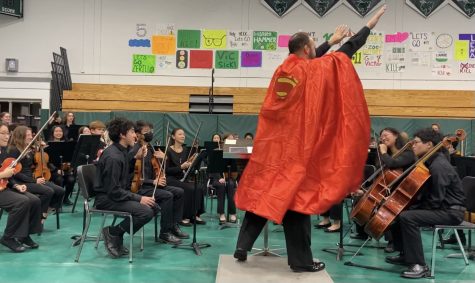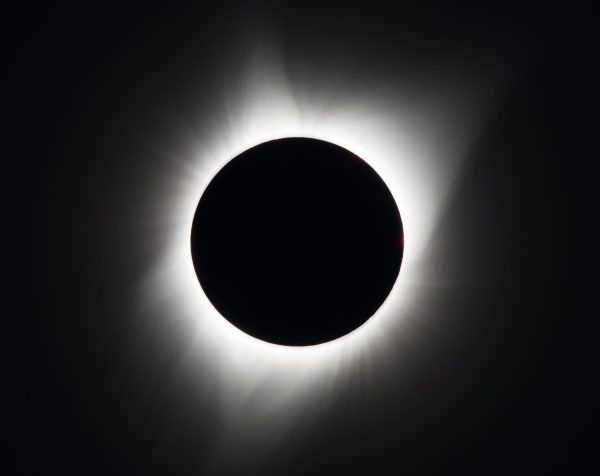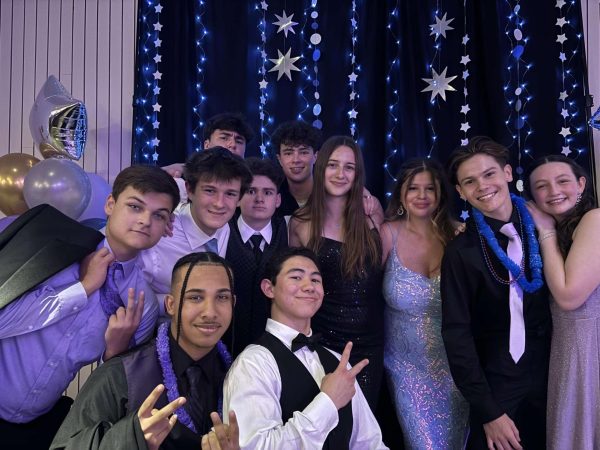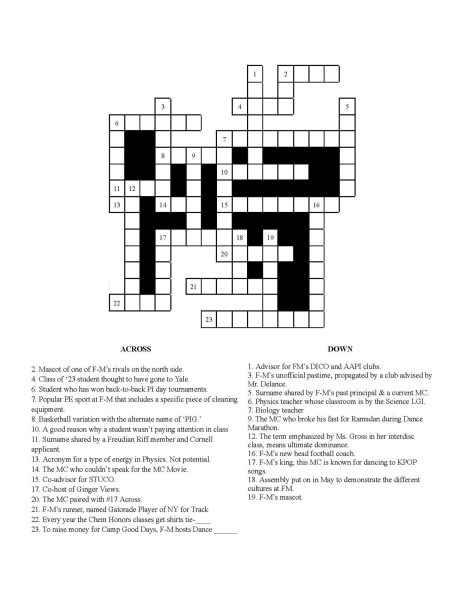Innocent celebrations or constitutional violations?
The phrase, “Congress shall make no law respecting an establishment of religion or prohibiting the free exercise there of,” has become a frequent cry of proponents for religious rights. However, controversy concerning the First Amendment and its interpretation on school grounds has emerged especially with this holiday season fast approaching.
Like many debates of freedom of speech regarding the First Amendment, issues of religious rights have been at the forefront of American politics in the past few years. For instance the enforcement of the Constitution within schools is increasingly unclear particularly with the ever growing push for greater diversity in the classroom. Many educators and public school districts struggle to find the careful balance between restricting students’ personal liberties and creating a positive environment for all. Districts are left grappling with how to interpret the First Amendment in order to allow for the spirit of the season without promoting or excluding any religions.
One approach has been to avoid any form of in-school celebration by increasing the number of religious holidays granted off from school. While this effectively deals with the observation of holidays, experts warn it could become problematic for many states that have mandates on the number of days public schools must be in session. They fear an increase in days off might cause schools to not be able to reach this minimum. According to the National Center for Educational Statistics most state legislators require at least 180 days in school. With the federal holiday count already at eleven days (which has expanded in recent years), granting more days off for the observation of holidays may not be possible.
One advocate for altering school calendars to keep up with rapid demographic changes is Petula Dvorak, a regular columnist from the Washington Post in D.C.. She argues, “A calendar should serve the population, rather than the population bowing to the calendar.” Dvorak agrees with schools recessing in order to observe holidays from a wide myriad of religions. Other experts also agree with her opinions to increase days off in order to prevent students from having to choose between academic studies and their religious beliefs.
Meanwhile other schools have taken drastic measures to limit religious affiliations in their schools by choosing to omit all religious celebration from their halls during the holidays. Some districts resorted to halting pumpkin carving and costumes at Halloween, Santa hats at Christmas, and Easter egg hunts in the spring. According to Fox5 NY, one district in New Jersey, Randolph Township, removed the names of all holidays from their school calendar to prevent “hurting anyone’s feelings.” This again handles religious differences within schools, however it has received pushback from some more devoted groups who are advocates of sharing their faith.
The “Friend or Foe” Campaign spearheaded by Dr. Jerry Falwell prides itself on promoting religious celebration in public settings and combats “anti-Christmas” sentiment. The parent organization, the Liberty Counsel, believes that when schools and other public areas do not celebrate Christmas it is a violation of their rights. According to its website, this organization “promises to be a ‘Friend’ to those who recognize Christmas and a ‘Foe’ to those who censor it.” It appears that extinguishing all religious celebration from public schools is not a viable or popularly supported option for districts either.
However, it appears some schools may have found a happy medium. Those who have chosen to celebrate holidays, especially in elementary classrooms, have provided guides for educators on how to do so in order to properly promote religious tolerance. They aim to teach the spirit of traditions and commonalities among the holidays and seasons without preaching specific religious doctrine. For example the NAEYC, or the National Association for the Education of Young Children issued an article in 2019 titled, “Anti-Bias Education and Holidays: Making Thoughtful Decisions” which explains how they feel religion should be handled in schools.
The debate still looms over administrations and educators: “Jingle Bells.” Is it a joyful Christmas tune or a conversion effort? The answer is surprisingly complex and in fact regionally divided across the country just like within schools. Districts are left to walk this tricky tightrope of the separation between church and state and the observation of religious celebrations in their halls.

Sara Kronenberg is a sophomore this year at FM and has just recently begun her adventure on The Buzz as a Featured Writer. She is so happy to be able to...










